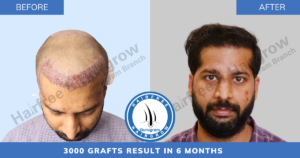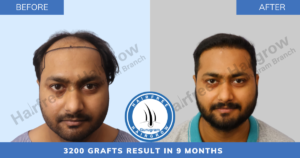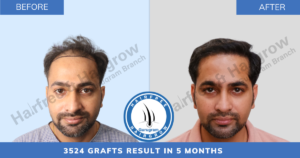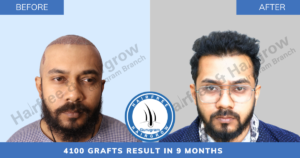Hair Transplant Services
Before and After





Hair Growth Medicines: The Ultimate Guide
Hello, I am Dr. Santpal Sangwan, a Hair Transplant Surgeon from the Hairfree Hairgrow Gurugram clinic, one of the best hair transplant clinics in Gurugram.

Introduction
Hair loss is a common problem affecting millions of people worldwide. While there are numerous causes, genetic hair loss is one of the most prevalent. This article aims to provide an ultimate guide to hair growth medicines, shedding light on their effectiveness, usage, and potential side effects.
Understanding Genetic Hair Loss
Genetic hair loss, also known as androgenetic alopecia, is a hereditary condition that affects both men and women. It accounts for more than 95% of hair loss in men.
Hair Growth Medicines
There are several hair growth medicines available in the market today. These medicines work by either promoting hair growth or preventing further hair loss.
Minoxidil
Minoxidil is an over-the-counter medication that is applied to the scalp. It works by prolonging the growth phase of hair follicles, leading to longer and thicker hair.
Finasteride
Finasteride is a prescription medication that is taken orally. It works by blocking the production of a hormone that causes hair loss.
Side Effects of Hair Growth Medicines
While hair growth medicines can be effective, they also come with potential side effects. These can range from mild irritation to more serious issues like changes in heart rate.
Conclusion
While medicines can help manage hair loss, they are not a permanent solution. For individuals looking for a more permanent solution, a hair transplant could be an option worth considering. As a hair transplant surgeon at one of the best hair transplant clinics in Delhi, I can attest to the effectiveness of this procedure.
Hair Transplant Services
Before and After





